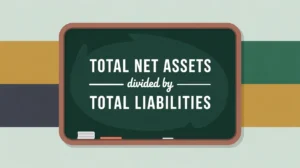Importance of Donor-Specific Guidelines (USAID, EU, FCDO)
Donor-specific guidelines establish the financial, administrative, and reporting rules that nonprofits must follow to manage funds from major institutional donors. This matters because each donor has unique requirements, and failure to comply can result in disallowed costs, reputational damage, or funding loss. For nonprofits in social innovation and international development, navigating USAID, EU, or FCDO guidelines is central to sustaining large-scale grants and contracts. Boards and leadership value compliance with these rules because it protects funding pipelines and strengthens global credibility.
Definition and Features
Donor-specific guidelines are defined as the set of contractual and regulatory requirements established by individual funders such as the U.S. Agency for International Development (USAID), the European Union (EU), or the UK’s Foreign, Commonwealth & Development Office (FCDO). Key features include:
- Allowable Costs: rules for what expenses can be charged to grants.
- Procurement Standards: requirements for tendering, vendor selection, and documentation.
- Reporting Formats: donor-specific financial and program report templates.
- Audit and Compliance: tailored audit standards and documentation requirements.
These guidelines differ from general frameworks like OMB Uniform Guidance because they are donor-specific and may vary widely across funders.
How This Works in Practice
In practice, nonprofits adapt financial systems and policies to align with each donor’s rules. For example, an NGO receiving a USAID grant must follow ADS (Automated Directives System) rules, while an EU-funded project must comply with PRAG (Practical Guide to Contract Procedures). Finance teams create donor-specific compliance checklists, program teams align implementation with reporting requirements, and boards oversee adherence at the governance level. Auditors often test against donor rules in compliance audits.
Implications for Social Innovation
For nonprofits in social innovation and international development, donor-specific guidelines shape how programs are delivered and financed. Transparent compliance reduces information asymmetry by showing stakeholders that donor conditions are met consistently. Donors value organizations that understand and operationalize their guidelines, while nonprofits benefit from reduced audit risks and stronger relationships with funders. By mastering donor-specific rules, nonprofits reinforce credibility, strengthen financial governance, and expand their ability to scale systemic change.







